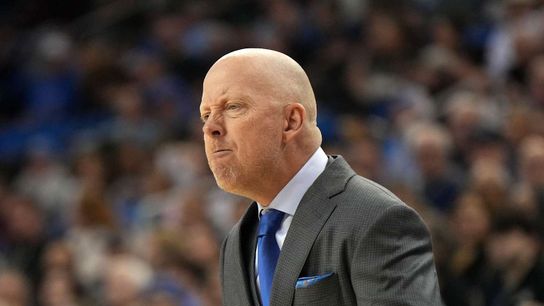In an era where older coaches are leaving the game in droves, pointing to NIL and the transfer portal as major reasons why, many fingers are pointed at high school and college aged kids for driving the rapidly evolving landscape of college athletics.
Last night, after losing to Michigan 94-75 at home in a college basketball matchup of top 25 teams, Mick Cronin went off on a rant for the ages about his roster, and also took aim at his staff.
"We're soft. So don't tell me you want to win. Just don't tell me you want to win."
"It's crazy. It's every day and I'm tired of it."
"I have the most energy of anybody at practice. I'm upset with everybody in that locker room from my assistant coaches to my players."
While managing to compliment himself a few times, Cronin called the players and staff he hand picked to come play and work with him "delusional."
"I mean, I don't have to do anything else. I've got almost 500 wins. I'm only 53. It's a joke. Yet I come in and I have more passion and energy and pride than everybody in there, and that's the problem."
"So what the truth of it has been, is it's really hard to coach people that are delusional. The hungry dog gets the bone. We've got kids that think they're way better than they are...they're nice kids, but they're completely delusional about who they are."
Cronin's comments will attract a fair share of folks that agree, and point to NIL and the portal, or social media, as reasons this generation is delusional and allude to past generations being so much easier and rewarding to work with. With 491 wins to his name with stops leading Murray State, Cinci, and now UCLA, who am I to argue?
As Teddy Roosevelt once said though - "Complaining about a problem without posing a solution is called whining" - and while whining about how players act, think, or play may have served as a motivational tactic once upon a time, today those players have never had an easier path out the door to take their talents elsewhere, thanks to the portal.
With all that said, it's always interesting to see how a team responds after their coach decides on this strategy. College football is certainly no stranger to it as well.
